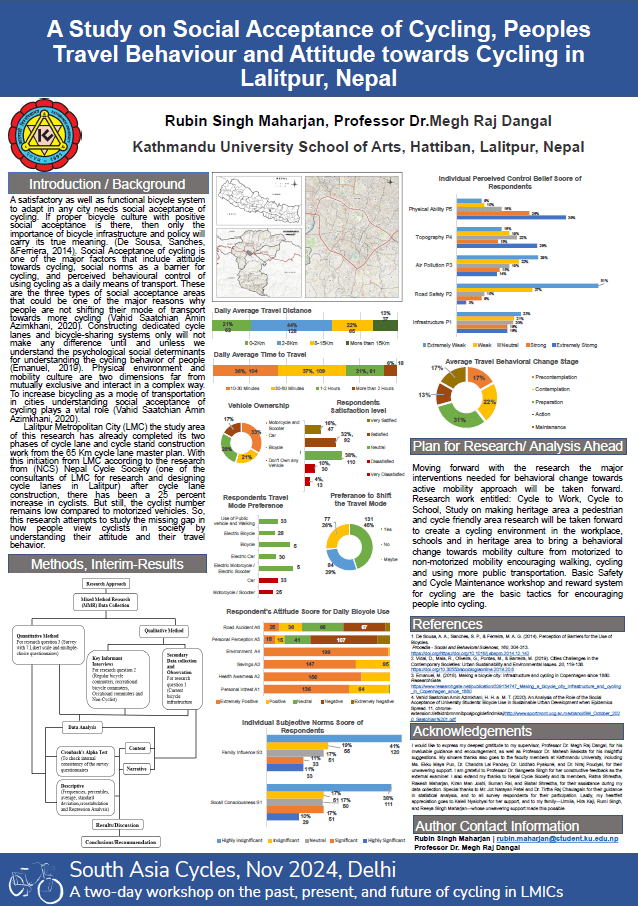A Study on Social Acceptance of Cycling, Peoples Travel Behaviour and Attitude towards Cycling in Lalitpur, Nepal

Abstract
Shifting the number of people from motorized mobility towards non-motorized mobility has been a global concern due to the rise in the number of private vehicles. Cycling is considered one of the sustainable modes of mobility that supports the green economy. However, many people do not prefer it for their daily commute and are inclined towards using motorized vehicles. The purpose of this study was to understand social acceptance of cycling. Mixed-method study was based on both qualitative and quantitative research approaches. For the interviews, participants were selected through purposive sampling, and data was collected through semi-structured key informant interviews. In addition, an online survey and field-level data collection were conducted using convenience sampling for survey participants. Inferential analysis, cross-tabulation, and regression analysis were also conducted. The study resulted these major findings. Firstly, social acceptance of cycling, the theory of planned behavior consisting of attitude, perceived behavioral control, and social norm barriers was identified. Overall, social acceptance of cycling reflects a positive attitude towards cycling. However, some people still hold a negative attitude due to social norms and perceived behavioral control, which act as major barriers to cycling. This indicates that young people have a more positive attitude towards cycling compared to other age groups. Secondly, non-participatory observations were conducted to assess the current condition and functionality of bicycle infrastructure. We could see the bicycle infrastructure not functioning properly with a lack of awareness among people about using the newly constructed cycle lane. For the third major finding, maximum people have shifted from the contemplation to preparation stage of people’s travel behaviour towards cycling. This shows a positive attraction towards cycling in the future but still, people are not into action to cycle. Due to a lack of self-confidence in their physical strength and topographical barrier, most people lack confidence in cycling due to which maximum people don’t want to shift their mode towards cycling. It was found that giving basic training and habit of cycling by cycle to school-going students as well as people going to the workplace so that first they understand how to use it and learn its capacity then only cycling to school or office once a week will slowly create a habit. In this way building confidence among people about cycling will bring change in their mobility behaviour in the long term.
Keywords: Social Acceptance, Attitude, Social Norms, Perceived Behavioural Control, Cycling, Nepal
